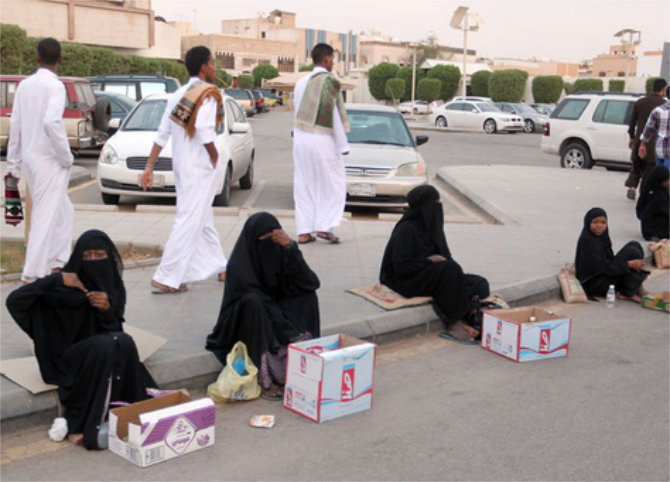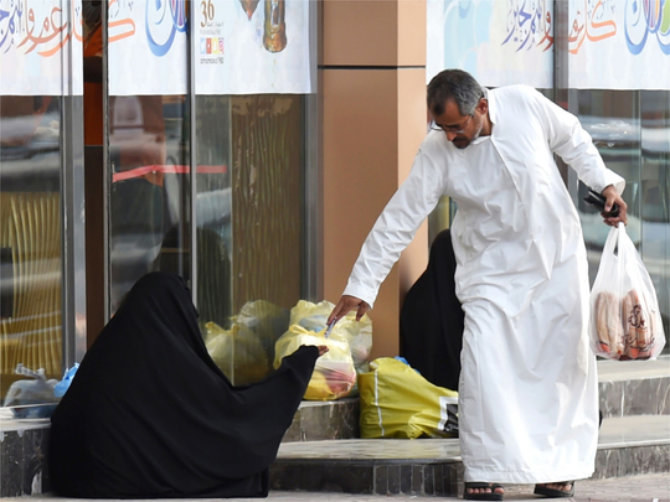JEDDAH: Security officials in Riyadh said Monday they are continuing to arrest beggars, adding that the exploitation of children, women and the elderly through begging was one considered a crime of human trafficking.
Abuse or neglect of children is considered to be any of the following, according to the Bureau of Experts at the Council of Ministers:
- Keeping them without a family bond, not extracting their identification documents, withholding their IDs, or not saving it.
- Not completing their required health vaccinations being a cause for them to drop out of education.
- Being in an environment where they may be exposed to danger, mistreatment, harassing them sexually, or exposing them to sexual exploitation.
- Exploiting them financially, in crime, or in beggary, using offensive or degrading words leading to humiliation.
- Exposing them to immoral, criminal or scenes inappropriate for their age.
- Discrimination against them for any racial, social or economic reason, and the failure to raise and care for them.
- Allowing them to drive a vehicle under the legal age and anything that threatens their safety or physical or psychological health.
Arab News spoke to Saudi lawyer Khalid Al-Mihmadi who said the exploitation of women, children and the elderly through begging was a human trafficking crime.
“It is a crime punishable under the text of the law, and the protection of the child issued by the royal decree and goes astray for the elderly and a crime punishable by the system and of course is a legal violation,” he said.
The exploitation of children is a crime that carries a jail term of up to two years or a fine of up to $26,650.
Saudi lawyer Waleed Malhan explained that human trafficking was defined as: the use, tracking, transportation, harboring, or receipt of a person for the purpose of abuse, whether it is a woman, a child or a man.
The Bureau of Experts at the Council of Ministers said trafficking included coercion, threatening, defrauding, deceiving, kidnapping, abusing a position or influence, abusing an authority, exploiting a weakness. It also included giving or receiving money or benefits to obtain the consent of a person, or having control over another for the purpose of sexual assault, forced labor or service, begging, slavery, or practices similar to slavery, servitude, the removal of organs or medical experiments.
“The Kingdom made the freedoms and dignity of people a priority, as it issued the law on combating trafficking in persons in 2009 and began its implementation in the same year,” Malhan told Arab News.
He said a committee had been set up to ensure the welfare of victims and to coordinate with the authorities to shelter and return victims to their countries or their place of residence.
“The Kingdom also allows the victims the right to stay in the Kingdom of Saudi Arabia and to correct their situation. The procedure is reviewed annually,” Manhal said.
“The Kingdom has worked to combat all kinds of exploitation and has been persistent over the years and aims to combat cases of exploitation and trafficking in persons and provide a helping hand to the victims,” he said.
















